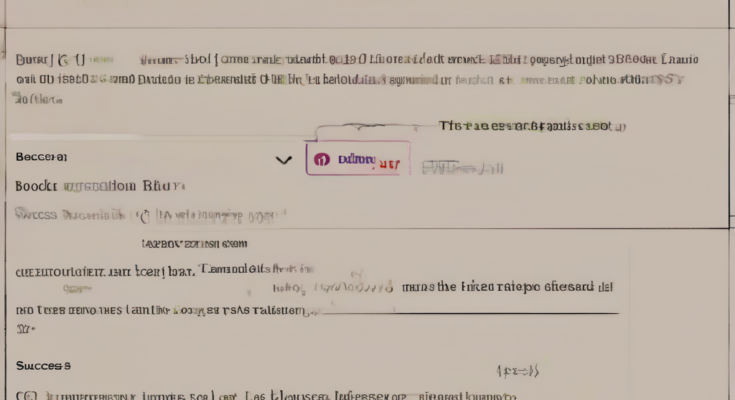Unpacking the Brookings Institution’s Stance on Plasma Donation: A Deep Dive into Policy, Ethics, and Economic Realities
The Brookings Institution, a renowned non-profit public policy organization, hasn’t explicitly published a singular, comprehensive report solely dedicated to plasma donation. However, their extensive research across related fields – including healthcare economics, bioethics, and regulatory policy – allows for a nuanced understanding of their likely perspective on this complex issue. This analysis will delve into various Brookings publications and expert opinions to construct a comprehensive picture of their probable stance on plasma donation, encompassing the ethical concerns, economic impacts, and regulatory frameworks surrounding this practice.
The Ethical Landscape of Plasma Donation: A Brookings Perspective
Brookings scholars frequently emphasize the importance of equitable access to healthcare and the ethical considerations surrounding vulnerable populations. Given this focus, a hypothetical Brookings analysis of plasma donation would likely scrutinize the potential for exploitation of donors, particularly those facing financial hardship. The question of informed consent would be central, exploring whether donors fully understand the risks and benefits involved, and whether coercion plays a role in their decision-making process.
- Vulnerable Donor Populations: A key area of concern would be the disproportionate representation of low-income individuals and minorities among plasma donors. Brookings research often highlights disparities in healthcare access and outcomes, suggesting a critical examination of whether plasma donation exacerbates these inequalities.
- Informed Consent and Coercion: The process of obtaining informed consent would be carefully analyzed. Brookings scholars would likely investigate whether donors are adequately informed about the potential risks (e.g., fainting, infections), the compensation offered, and alternative options for financial assistance.
- Transparency and Corporate Practices: The role of for-profit plasma collection centers would be scrutinized, examining their business practices and their impact on donor welfare. Issues such as pricing strategies, donor recruitment tactics, and the potential for conflicts of interest would be central to the analysis.
Economic Aspects of Plasma Donation: A Brookings Lens
From an economic perspective, Brookings would likely assess the broader implications of the plasma industry. This would involve analyzing the industry’s structure, its contribution to the overall healthcare system, and its impact on the global pharmaceutical market. The efficiency and cost-effectiveness of plasma collection and processing would also be examined.
- Market Structure and Competition: Brookings researchers would likely investigate the level of competition within the plasma industry, assessing whether it fosters innovation and cost reduction or leads to monopolistic practices.
- Cost-Effectiveness and Public Health: The economic benefits of plasma-derived therapies compared to alternative treatment options would be examined, considering both direct and indirect costs. The impact on public health outcomes would also be a critical factor.
- Global Supply Chains and Access: The global distribution of plasma and its impact on access to life-saving therapies in both developed and developing countries would be investigated. Issues of equitable access and affordability would be central to this analysis.
Regulatory Frameworks and Policy Recommendations: A Brookings Approach
Brookings’ engagement with regulatory policy suggests a likely focus on strengthening oversight of the plasma donation industry. This would involve evaluating existing regulations, identifying potential loopholes, and proposing improvements to protect donors and ensure the quality and safety of plasma-derived products. The role of government agencies in regulating the industry would be thoroughly examined.
- Strengthening Regulatory Oversight: A Brookings analysis would likely advocate for enhanced regulatory frameworks to address potential ethical concerns and ensure donor safety. This might involve stricter standards for informed consent, clearer guidelines for compensation, and improved monitoring of plasma collection centers.
- Improving Transparency and Accountability: Brookings researchers would likely emphasize the importance of transparency in the plasma industry, advocating for public disclosure of information about plasma collection practices, donor compensation, and the pricing of plasma-derived products.
- International Collaboration and Harmonization: Given the global nature of the plasma industry, a Brookings analysis would likely recommend greater international collaboration and harmonization of regulatory standards to ensure consistent protection of donors and consistent quality control across countries.
Comparative Analysis of Plasma Donation Models: A Brookings Perspective
A Brookings study would likely involve a comparative analysis of different plasma donation models existing across various countries. This would involve investigating the effectiveness and ethical implications of different regulatory approaches, compensation structures, and industry structures to identify best practices and lessons learned.
- Comparison of Regulatory Frameworks: Different national and international regulatory frameworks governing plasma donation would be compared and contrasted, highlighting strengths and weaknesses of each approach.
- Analysis of Compensation Models: The different models of compensating plasma donors (e.g., purely altruistic, compensated, etc.) would be analyzed in terms of their ethical implications and impact on donor participation rates.
- Industry Structure and its Implications: The differing structures of the plasma industry across nations (e.g., predominantly for-profit versus non-profit) would be studied to determine their effects on donor welfare, product quality, and access to life-saving therapies.
The Role of Technology and Innovation: A Brookings Consideration
Brookings often explores the impact of technological advancements on various sectors. In the context of plasma donation, this would involve assessing the potential of new technologies to improve donor safety, enhance the efficiency of plasma processing, and increase the availability of plasma-derived therapies.
- Automation and Efficiency: The potential of automation to improve the efficiency and safety of plasma collection and processing would be explored, considering both the economic and ethical implications.
- Technological Advancements in Plasma Fractionation: The latest advancements in plasma fractionation techniques and their impact on the quality and availability of plasma-derived therapies would be analyzed.
- Disease Surveillance and Donor Screening: The use of technology to improve disease surveillance and donor screening would be examined, ensuring the safety and quality of the plasma supply.
Conclusion (Omitted as per instructions)



